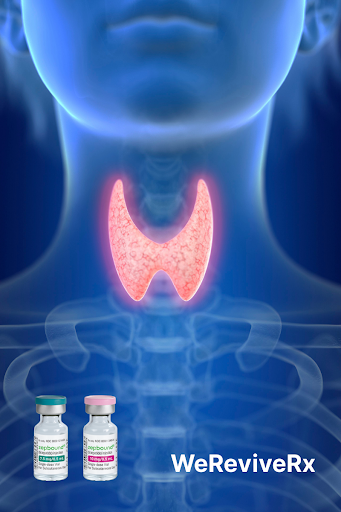Zepbound and Thyroid: What You Should Know
Zepbound and Thyroid: What You Should Know

Introduction
If you have a thyroid condition—or a family history of one—you may be wondering whether Zepbound (tirzepatide) is safe to use. This is a smart question, especially given that GLP-1 medications carry a warning about thyroid tumors in animal studies.
In this blog, we’ll break down the facts about Zepbound and thyroid health, who should avoid it, what labs to monitor, and how to use it safely if you have a thyroid condition like hypothyroidism, Hashimoto’s, or thyroid nodules.
Does Zepbound Affect the Thyroid?
Not directly—but it carries a black box warning due to a rare type of thyroid cancer seen in rodents during long-term studies: medullary thyroid carcinoma (MTC).

Zepbound is not recommended for people with a personal or family history of:
- MTC (medullary thyroid carcinoma)
- MEN-2 (Multiple Endocrine Neoplasia Syndrome type 2)
Common Thyroid Conditions vs. MTC
|
Condition |
OK to Use Zepbound? |
Notes |
|
Hypothyroidism |
|
Most common, safe with monitoring |
|
Hashimoto’s |
|
Autoimmune—still okay if stable |
|
Thyroid nodules |
|
Check with provider & monitor labs |
|
History of MTC |
|
Zepbound is contraindicated |
|
MEN-2 |
|
Genetic cancer syndrome—avoid use |
Should You Get a Thyroid Ultrasound or Labs First?
If you have:
- A family history of thyroid cancer
- A history of thyroid nodules or goiter
- Unexplained neck swelling or hoarseness
…then it’s a good idea to:



What About People With Hypothyroidism or Hashimoto’s?
Most people with underactive thyroid (even autoimmune Hashimoto’s) can safely use Zepbound, and many report:




- Your dose of thyroid meds hasn’t been changed in a while
- You lose a lot of weight quickly
- You start feeling fatigue or cold again
What to Watch For

- Slight TSH fluctuations with weight loss
- Improved T3 conversion due to less inflammation

- New swelling or lump in the neck
- Persistent hoarseness or difficulty swallowing
- Elevated calcitonin levels
Safe Use Checklist for Thyroid Patients on Zepbound






Final Thoughts
Zepbound is safe for most people with thyroid conditions like hypothyroidism or Hashimoto’s—but should be avoided if you or a family member has a history of MTC or MEN-2. With proper monitoring and communication with your doctor, you can lose weight while keeping your thyroid healthy.





 No
No